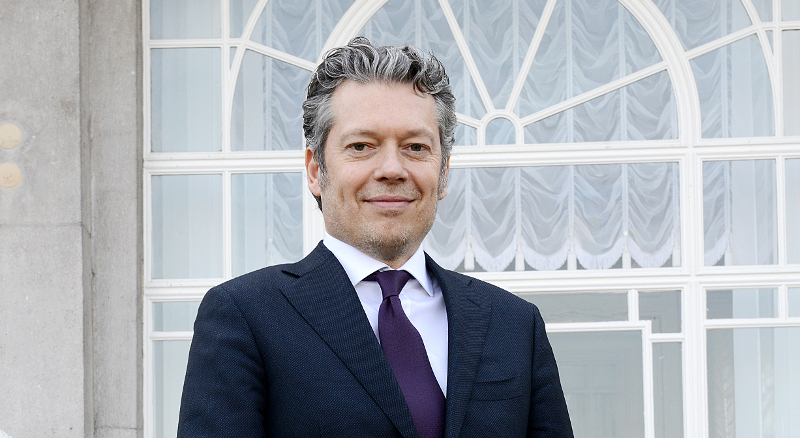
The first section of a nonprofit business plan is a summary section. This describes the changes you wish to see in your organization. This section will discuss your mission and vision as well the goals of your organization. This summary is also a overview of what the plan consists of. This summary should also include your financial information, as well your costs.
Executive summary
A nonprofit business plan executive summary should include information about the organization's mission, goals, and strategies. It should also describe the target audience and identify the marketing strategy. It should include future plans and the current financial situation. It should also mention the team members. This section should highlight the board members and key staff.
A non-profit business plan's executive summary must also include information about the day-today operations of the company, its staff, and its facilities. It should also outline the number of employees, pay structure, and types of positions. It should also provide information on future employee hiring plans.
Team section
The team section of a business plan for nonprofits should explain the organization's organizational structure. Include details about training and other requirements for team members. You can also mention future hiring plans or temporary staffing options. Finally, include yourself. In addition to explaining your role in the organization, describe your personal goals and qualifications.

Depending on the mission of your nonprofit, you may also include a marketing plan. Your target audience should be identified and the four Ps used to market your organization. Particularly, identify how you can attract donors. You must also consider customer and donor retention when developing your marketing plan.
Costs
The costs of running your nonprofit business plan must be included in the nonprofit business plan. This section should contain a breakdown of the direct costs including salaries, facilities and insurance. It should also include expenses for website maintenance, phone bills, and other costs. It is a smart idea to include future cash flows statements, income sheets and balance sheets.
A statement detailing activities for a nonprofit should be part of your business plan. It will tell you how much your nonprofit is earning from its activities. This statement should break down the revenues and costs from the first year and then every year thereafter.
Market analysis
Market analysis is one of the most important aspects in creating a nonprofit business plan. Market analysis (also known as an environment scan) involves researching the market to identify the needs and determine how the company will fulfill those needs. Without adequate market knowledge, no amount of mission and vision will succeed. Market analysis should include a summary that includes the market, competition, value proposition, product or service, and a description of the market.
The market analysis section of your nonprofit business plan should outline projections based on market data and describe your target market, competitors, beneficiaries, and potential partners. It should also list specific outcomes the nonprofit wants to achieve. A detailed operational plan is essential to a plan that succeeds. This plan outlines how the nonprofit will carry out activities and assess the program's effectiveness.

Organisational structure
The organizational structure of a nonprofit business plan should explain the structure of the organization and describe the goals and objectives. The business plan should identify which industry or niche the nonprofit will serve. It should also outline how the nonprofit's products or services will benefit the clients and the community. The non-profit's business plan should identify its board members, as well as its management. The easiest way to do this is to create an organizational chart.
Typically, a nonprofit will have a leadership team or board of directors, while a for-profit business will have a volunteer coordinator and volunteers. No matter the size of your organization, you must clearly describe your organizational structure and identify its key management staff. In other words, describe who is going to be involved in each department and describe their job descriptions.
FAQ
What is the average time it takes to become a consultant
Depending on your industry and background, the time required will vary. Most people start their career with only a few months to find work.
However, consultants can spend many years learning before they are able to find work.
How do I choose a good consultant?
Three main factors should be considered:
-
Experience - How skilled is the consultant? Are you a beginner or an expert? Is her resume a proof of her skills and knowledge?
-
Education - What did this person learn during school? Did he/she take any relevant courses after graduating? Do we see any evidence of this learning in the way he/she writes?
-
Personality: Do you like this person or not? Would you want this person to work for you?
-
These questions will help us determine if the consultant is right to meet our needs. If you do not have the answer, it is worth interviewing the candidate to find out more.
Who hires consultants
Many organizations employ consultants to assist in projects. These can include small businesses and large corporations, government agencies as well non-profits and educational institutions.
Some consultants work directly for these organisations, while others freelance. The hiring process will vary depending on the complexity and size of the project.
Many rounds of interviews are required when hiring consultants. Then, the final decision will be made about who you believe is best for the job.
Is it necessary to pay taxes on consulting income
Yes. Taxes will be charged on consulting profits. The amount you earn depends on your annual income.
If you're self-employed, you can claim expenses on top of your salary, including rent, childcare, and food.
However, you can't deduct interest payments for loans, vehicle depreciation or the cost to purchase equipment.
You can only claim back 25% of your expenses if you earn less than PS10,000 a year.
However, even if your earnings exceed this threshold you may still be subject to tax depending on whether or not you are a contractor or an employee.
The PAYE tax for employees and the VAT tax for contractors is generally paid as you earn.
What are the benefits of being a consultant
Consultants are able to pick when and where they want to work.
This means that you can work when you want and wherever you want.
It means that you can change your mind easily without worrying about losing your money.
Finally, you can control your income and set your own schedule.
Statistics
- So, if you help your clients increase their sales by 33%, then use a word like “revolution” instead of “increase.” (consultingsuccess.com)
- According to IBISWorld, revenues in the consulting industry will exceed $261 billion in 2020. (nerdwallet.com)
- According to statistics from the ONS, the UK has around 300,000 consultants, of which around 63,000 professionals work as management consultants. (consultancy.uk)
- WHY choose me: Why your ideal client should choose you (ex: 10 years of experience and 6-week program has helped over 20 clients boost their sales by an average of 33% in 6 months). (consultingsuccess.com)
- My 10 years of experience and 6-step program have helped over 20 clients boost their sales by an average of 33% in 6 months. (consultingsuccess.com)
External Links
How To
How to start a consulting company and what should I do first?
A consulting business is a great way of making money online. It doesn't require any prior business experience nor capital. A good place to start your own consulting company is to build a website. After you have built a website, social media platforms such Instagram, Pinterest and LinkedIn will be useful to spread the word about your services.
These tools will allow you to create a marketing plan which includes:
-
Create content (blogs).
-
Building relationships (contacts).
-
Generating leads, also known as lead generation forms
-
Selling products online
Once your marketing strategy is developed, you need to find clients willing and able to pay for your services. Some prefer to meet up at networking events or go to meetings, while others prefer to use online platforms like Craigslist, Kijiji, and others. You have the freedom to choose.
After you have found new clients, it's important to discuss terms and payment options. You can discuss hourly rates, retainer agreements, flat fees, and other options. It's important to know what you expect before accepting a client so you can communicate clearly throughout the process.
Hourly agreements are the most common contract type for consultancy services. In this case, you agree to provide certain services at a fixed rate each month or week. You might be able, depending on which service you offer, to negotiate a discount. Make sure you understand what you are signing when you accept a contract.
Next, you will need to create invoices that you can send to your clients. Invoicing can seem simple until you try it. There are many ways that you can invoice your clients depending on what your preferences are. For instance, some prefer their invoices to be emailed directly to clients while others prefer hard copies to be mailed. No matter which method you choose to use, it is important that it works for you.
Once you have created invoices, it is time to collect the payments. Most people prefer PayPal because it is easy to use and offers various payment options. Other payment processors, like Square Cash or Google Wallet, Square Cash or Apple Pay, Venmo and Venmo are also available.
Once you're ready and able to collect payments, you should set up bank accounts. Separate savings and checking accounts will allow you to track your income and expenses independently. Setting up automatic transfers into your bank account is also helpful when paying bills.
It can seem daunting to start a consulting business. But once you understand how it works, it becomes second nature. For more information on starting a consultancy business, check out our blog post here.
The best way to make extra cash is to start a consulting business. Many consultants work remotely, which means they don't have to deal with office politics or long hours in the office. You have more flexibility than traditional employees because you aren't tied down by work hours.